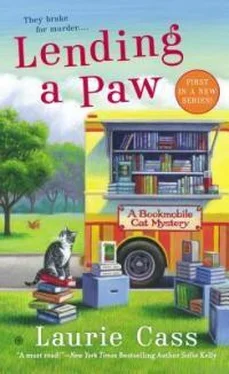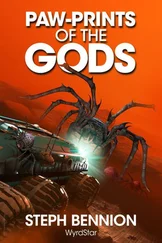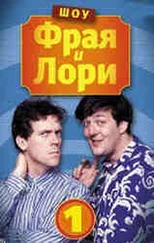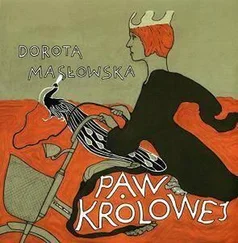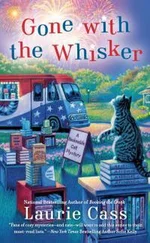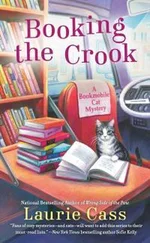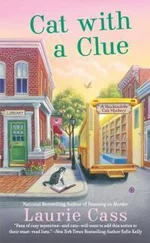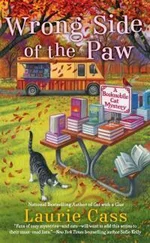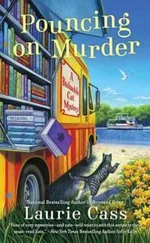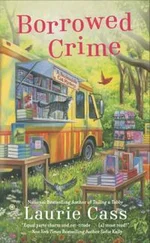He hung up the phone and looked at me with a schooled expression of blankness. “Detective Inwood was at the grocery store. He said he’ll stop by in about five minutes.”
“Inwood. He’s the short round one, right?”
The deputy actually laughed. “Nope. Devereaux is the short, round one. He looks like the letter D , see? And Hal Inwood is the tall, skinny one. He looks like the letter I .”
Clouds parted and the light shone down. “That’s brilliant,” I said sincerely.
He waved me off to a plastic chair, but he was smiling as he did so, and a few minutes later, Detective Inwood walked in. “Ms. Hamilton. What can I do for you?”
I stood, but didn’t move much closer. He was too tall (like the letter I ) to make a face-to-face talk much of a reality. “Sorry to bother you on a Friday night,” I said, “but I just found out something.”
“Yeah, what’s that?” He put an angular elbow on the front counter.
“Well, it’s a couple of somethings, actually.” I gave him a quick summary of the origin of Stan’s fortune. “His sisters were furious when he sold the farm, I was told.”
“Who told you about this?” While Inwood’s pose remained casual, the expression on his face was sharp.
“Oh. Well.” I mentally fast-forwarded through the next part of the conversation and decided it was best to tell the truth now rather than have it dragged out of me later. “Audry Brant. She was Stan’s first wife.”
Inwood reached into his pants pocket and pulled out a small pad of paper. “His first wife, you say.”
I winced. Audry was going to get a police visit and it was all my fault. Sorry about that, I told her silently. “She had no reason to kill him, though. They were divorced about fifty years ago. And anyway, that’s not an important something.”
Inwood used the pencil he’d pulled out of the memo pad’s spiral binding to dot a period. “What is?”
“The farmhouse where Stan was killed? That was where Stan grew up. That was the farm he sold out from under his sisters.”
“Now that is a something.” Detective Inwood nodded, a faint smile lurking around the corners of his mouth. “Ms. Brant give you that bit of information?”
“Yes, so I was wondering. Have you looked at Stan’s sisters? I mean, with him being killed at their old farm, it makes you think there’s a connection, right? They were all older than Stan, but it doesn’t take much strength to pull a trigger.”
But the detective was shaking his head. “All six sisters are accounted for, either passed away or moved out of state decades ago.”
“Oh.” I deflated. “The ones still alive, they have alibis? I mean, I’m sure you checked, but . . .”
“Of the three,” he said, “two are in nursing homes. The other is living in Arizona, and according to the golf course manager, she hasn’t missed her daily game of golf since she moved there fifteen years ago.”
“What about their children? I’ve heard the sisters all had a lot of kids. And the kids probably all had kids. Have all of them been checked out?”
The detective stuffed his memo pad back into his pocket. “The six sisters had twenty-three children. The twenty-three of them have had a total of seventy-two offspring. So, we’re working on it, Ms. Hamilton. Plus, there are other—” He stopped. Gave me a short, assessing look. “We’re investigating all avenues,” he said. “In addition to the family members, Stan Larabee had many friends and business associates across the country. A thorough investigation takes time.”
I nodded my understanding. And I did understand, but I was also pretty sure I knew what that look of assessment had meant—that he’d remembered whom I worked with.
They were still considering Holly a suspect.
• • •
Saturday’s breakfast of omelets made to order was delicious, but since I was scheduled to work that morning, I didn’t have time to get Aunt Frances off into a cozy corner for a chat. I wanted to tell her about Audry and Stan’s sisters and the reason behind the feud, but it would have to wait until the next day.
Sunday morning I decided to stop at the farmers’ market and see if I could find some raspberries to take up to Aunt Frances. While I wasn’t bearing bad news, not exactly, hearing the slightly sordid tale might be easier if the first raspberries of the season were involved.
Even at eight in the morning, the waterfront market was crowded. White tents over the bright colors of produce against the blue of Janay Lake was a feast for the eyes long before the food itself would be a feast for the tummy. I dawdled at the wide selection of lettuces—most of which I couldn’t put a name to, other than lettuce—and so heard Gunnar Olson before I saw him.
“Dear,” he said in a strained tone, “I’m getting hungry.”
I looked up and saw his wife ignoring him completely. A bunch of radishes were dangling from her hand. “Now,” she said to the woman behind the table, “these are organic, right? How organic are they?”
The two women started what was clearly going to be a long conversation about fertilizer and manure and irrigation. Gunnar heaved a huge sigh.
Mrs. Olson, who must have a first name, though she had never made it known to me, glanced my way. “Hello, Minnie, how was your winter? Gunnar, catch up with Minnie a moment, I need to learn more about these radishes.” She turned back to her conversation, leaving me and Gunnar standing face-to-face. My face to his collarbone.
What I needed was a stroke of brilliance in how to deal with a social situation in which one of the parties was a potential murderer. None came. Then again . . .
I put on a polite smile. “When did your wife get into town?”
“Couple of days ago. My dear wife and I had a wedding to attend yesterday,” Gunnar said, booming his voice across the two feet that separated us. The dear wife shot him a look. He put on a smile and waved his fingers at her.
“You know,” Gunnar said, turning back to me, “I’ve been thinking about the importance of libraries in small towns. What would you think about a donation to the Chilson District Library?”
My eyes thinned to the merest of slits. Was this a bribe? My jaw went forward and my chin went up. “What I want is the truth,” I said quietly. A donation would be nice, naturally, but I wasn’t going to tell him that.
He sucked in a breath through his teeth. My gaze locked on his. There was no way I was going to be the first one to blink, not if my eyeballs dried up and fell out of my head.
Gunnar looked away. “Half an hour,” he muttered. “The Round Table.”
“Fifteen minutes,” I said.
“Half an hour.” His ruddy skin colored. “Have to help the wife carry the groceries to the boat.”
Minnie: one point. Mrs. Olson: one point. Mr. Olson: a big fat zero. In victory, grace. I nodded. “Half an hour.”
• • •
To hang on to my advantage over Gunnar, I headed for the Round Table straightaway. Let him see me with the remains of my breakfast scattered all over the table; let him think he was late. I could feel my mother shaking her head and saying, “Minerva, aren’t you being a little petty? Take the high road, you’ll feel better about yourself.”
At the front door, I hesitated. Maybe she was right. Maybe I shouldn’t be messing around like this. Maybe I should just—
“Nah,” I said out loud, and went inside.
The Round Table was a diner, Up North style. Walls of wide pine paneling, ceiling of faded acoustic tile. The only thing new in the last twenty years was the flooring, and that was because the regular customers had signed a petition to replace the worn linoleum that had been laid down in 1952.
Читать дальше
